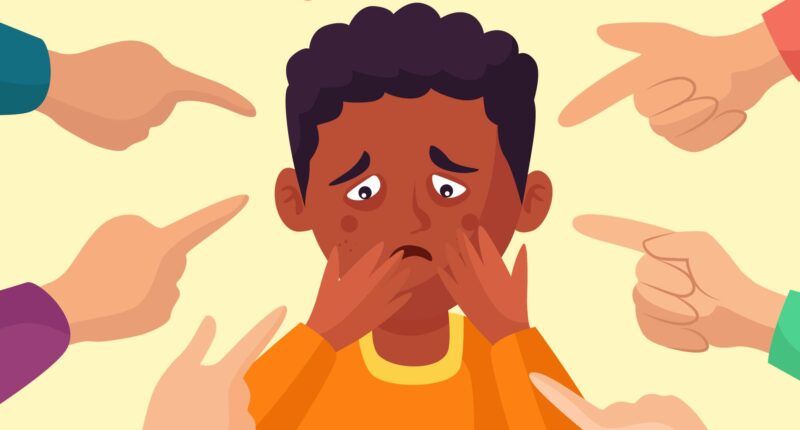Gaslighting is a form of emotional abuse where a person manipulates someone into doubting their reality, feelings, or perceptions. It’s a powerful and harmful tactic often used in relationships, workplaces, or other social dynamics. Over time, gaslighting can erode a person’s confidence, self-worth, and mental well-being. Understanding gaslighting and how to stop it is crucial for maintaining healthy relationships and protecting one’s mental health.
What Is Gaslighting?
Gaslighting is named after the 1944 film Gaslight, in which a husband manipulates his wife into believing she’s losing her sanity by altering her environment and denying her reality. In real life, gaslighting involves manipulating a person’s sense of reality to the point where they question their thoughts, memories, or perceptions. This tactic is commonly used in abusive relationships, but it can also occur in families, friendships, or workplaces.
How Gaslighting Works
At its core, gaslighting involves denial, deception, and emotional manipulation. The person doing the gaslighting often denies certain events happened, downplays their actions, or blames the victim for being overly sensitive. Over time, this causes the victim to feel confused, anxious, or even mentally unstable.
Common tactics include:
- Denial: The gaslighter may outright deny something they said or did, causing the victim to second-guess their memory.
- Trivialization: Dismissing the victim’s feelings or concerns by labelling them as “overreacting” or “too emotional.”
- Projection: Blaming the victim for the gaslighter’s behaviour, such as accusing the victim of lying when the gaslighter is the one being dishonest.
- Withholding information: Refusing to engage in conversations, making the victim feel isolated and frustrated.
- Countering: Questioning the victim’s memory, insisting that events did not happen the way the victim remembers.
The Psychological Impact of Gaslighting
Gaslighting can have severe psychological effects. Victims often experience confusion, self-doubt, and anxiety, and may feel as though they are “losing their mind.” Over time, gaslighting can lead to more serious mental health issues, including depression, low self-esteem, and PTSD (post-traumatic stress disorder). The constant questioning of one’s reality erodes trust in oneself and can make it difficult for victims to leave abusive relationships or environments.
Signs You Are Being Gaslighted
Recognizing the signs of gaslighting is the first step in stopping it. Here are some common indicators:
- Constantly doubting yourself: You frequently question your memory or perception, especially after interacting with a certain person.
- Feeling confused or “crazy”: The gaslighter often makes you feel irrational or unstable.
- Apologizing excessively: You find yourself apologizing frequently, even when you haven’t done anything wrong.
- Losing confidence: Over time, you may feel that you can’t make decisions without second-guessing yourself.
- Feeling isolated: The gaslighter may attempt to cut you off from friends, family, or other support systems, leaving you feeling alone.
How to Stop Gaslighting
If you suspect you are being gaslighted, it’s essential to take steps to regain control of your mental and emotional well-being. Here are ways to stop gaslighting in its tracks:
1. Recognize the Signs
The first step in stopping gaslighting is recognizing that it is happening. Keep track of interactions where you feel confused, anxious, or unsure of yourself. Write down specific instances where the gaslighter’s words or actions don’t align with reality. Keeping a journal can help you identify patterns and validate your feelings.
2. Trust Your Instincts
Gaslighting makes you doubt yourself, but it’s important to trust your instincts. If something feels off, it probably is. Reaffirming your intuition can help you resist the manipulation. Focus on your own experiences and memories rather than letting the gaslighter dictate your perception of events.
3. Set Boundaries
Once you recognize gaslighting behaviour, it’s crucial to set clear boundaries. Let the gaslighter know that their behaviour is unacceptable, and if possible, distance themselves from situations where manipulation occurs. Boundaries are essential for protecting your emotional health.
4. Seek Support
Gaslighting thrives in isolation, so it’s vital to seek support from trusted friends, family, or a therapist. Having a support system can help validate your experiences and reinforce your confidence. Therapy can also provide strategies to cope with the emotional manipulation and rebuild your self-esteem.
5. Avoid Engaging in Arguments
Gaslighters are skilled at twisting conversations and using denial to keep you off-balance. When confronted with gaslighting, avoid engaging in prolonged arguments. Instead, state your perspective calmly and walk away from the conversation if the gaslighter continues to manipulate.
6. Consider Professional Help
If you are in a situation where gaslighting is ongoing and affecting your mental health, it may be necessary to seek professional help. Therapists or counsellors can provide tools for managing the emotional effects of gaslighting and help you develop strategies for removing yourself from toxic environments.
7. Rebuild Your Confidence
Gaslighting often leaves victims feeling insecure and unsure of themselves. Rebuilding your confidence is a crucial part of healing. Surround yourself with positive influences, engage in activities that boost your self-esteem, and remind yourself that your thoughts and feelings are valid.
Conclusion
Gaslighting is a harmful form of emotional manipulation that can have serious effects on mental health. By recognizing the signs and taking steps to stop it, individuals can reclaim their sense of reality and protect their emotional well-being. Whether it occurs in personal relationships or professional environments, gaslighting should never be tolerated. With the right strategies and support, it is possible to break free from gaslighting and regain control of your life.










